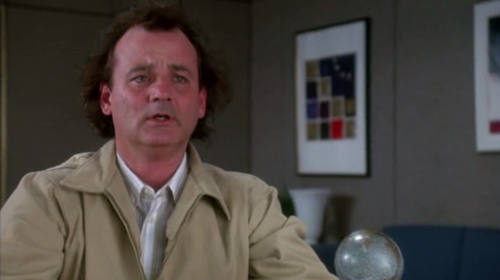
Bob.
The best line from everyone’s favorite Bill Murray / Richard Dreyfus psycho-comdey What About Bob occurs when Murray’s character (Bob) first enters Dreyfus’ office, sits down, and begins answering the doctor’s questions:
Dr. Leo Marvin: Are you married?
Bob Wiley: I’m divorced.
Dr. Leo Marvin: Would you like to talk about that?
Bob Wiley: There are two types of people in this world: Those who like Neil Diamond, and those who don’t. My ex-wife loves him.
Dr. Leo Marvin: [pause] I see. So, what you’re saying is that even though you are an almost-paralyzed, multiphobic personality who is in a constant state of panic, your wife did not leave you, you left her because she… liked Neil Diamond?
After talking to urbanists over the years, the same thing can be said about Kunstler. People either love him or hate him. In some ways, Kunstler serves as an urban shibboleth. (Shibboleth refers to a “a secret word” or ritual that serves as a test to prove one’s membership of a group.) Next time you’re small-talking about urban planning, casually drop Kunstler’s name. You’ll get either a semi-scowl, or the beginnings of wide-eyed glee. (Spoiler alert: I’m one of the latter.)

Jim [in the pink] and I hanging out in West Palm Beach.
Kunstler then wrote a number of similar books on cities and urban design, before transitioning into books on peak oil and the global (US) financial system. He’s now a full fledged “doomer”, publishing books and blogs on the coming collapse of the global economy (any day now), “techno-narcissism” (aka. the conflation of energy and technology leading to the fantastical deification of electronic progress), and writing medicore post-apocalyptic novels. Today he’s part public intelectual, part architectural court jester, and part Cassandra-esque pariah.
Urbanism v. Eschatology

Jacobs’ last book, too depressing for most people.
There are lots of reasons why Kunstler tends to divide in the urbanist community. His writing style is flagrant pugilistic, filled with pithy jokes and retorts. He gets obsessed with oddly narrow arguments and repeats them over and over, for example that skyscrapers are doomed because condo associations won’t survive, or that Japan will voluntarily give up fossil fuels and “go medieval.”
But the Kunstler schism runs deeper than simple rhetorical tastes. It points to more general disagreements about the connection between urban design and capitalism. Can you critique the built environment without re-thinking our economic system? To what degree is the US economy predicated on sprawl? Can you have growth without destroying the planet with fossil fuels?
Perhaps unsurprisingly, Kunstler’s intellectual trajectory is not unusual in critical urbansm. Jane Jacobs began writing about sidewalks, ended up obsessed with re-thinking the genesis of economic growth, before finishing her career with bleak prognostications on social collapse. Leon Krier, Lewis Mumford, or (today in Minnesota) Chuck Marohn take their critiques beyond design principles and into the realm of fundamental economics.
I’ve no doubt that Kunstler is happy to play the role of “a divider” (as GW Bush might say). He writes like a kid with a new toy, gleefully pushing as many buttons as he can find. But the Kunstler schism points to a deep tension between design and economics within the conversation about rethinking our cities. While some people seem certain that today’s global economy is bound for disaster, others seem sanguine about its resilience. I imagine many sit somewhere in the middle, adopting varying degrees of confidence about the ability of capitalism to fend off collapse, perhaps keeping their doubts to themselves.
Love him or hate him, Kunster’s gloomy revelations force you to sharpen your opinion on this question: Can we fix our cities without changing our economy? You don’t have to be living off the grid sharpening your prophesy collection to have an opinion on the matter.
